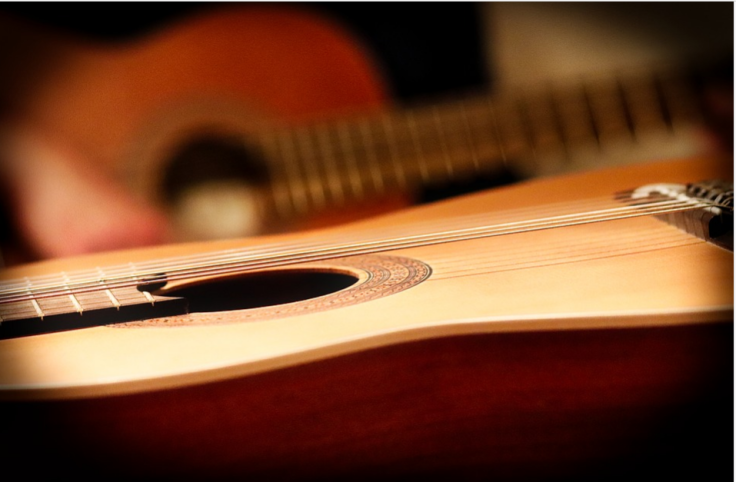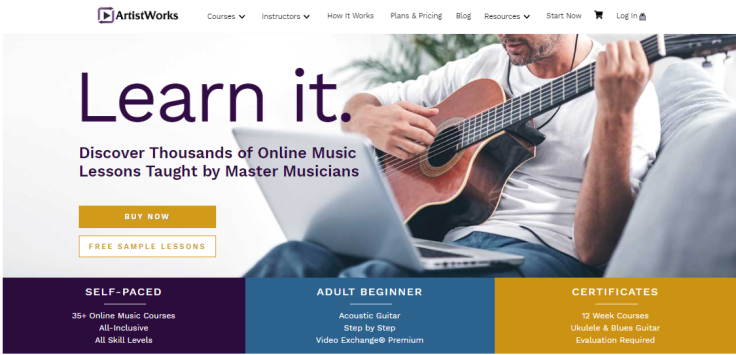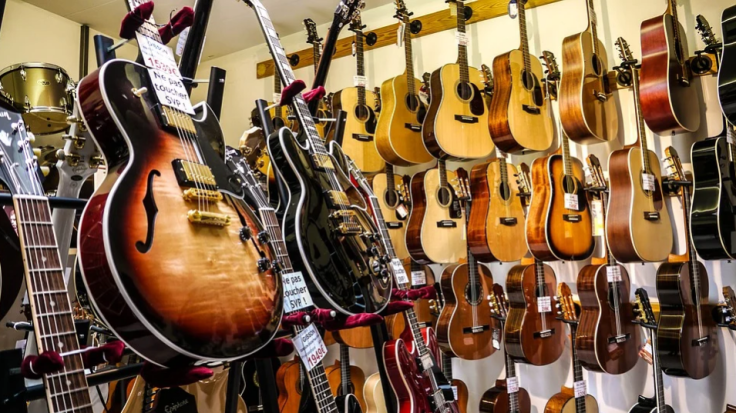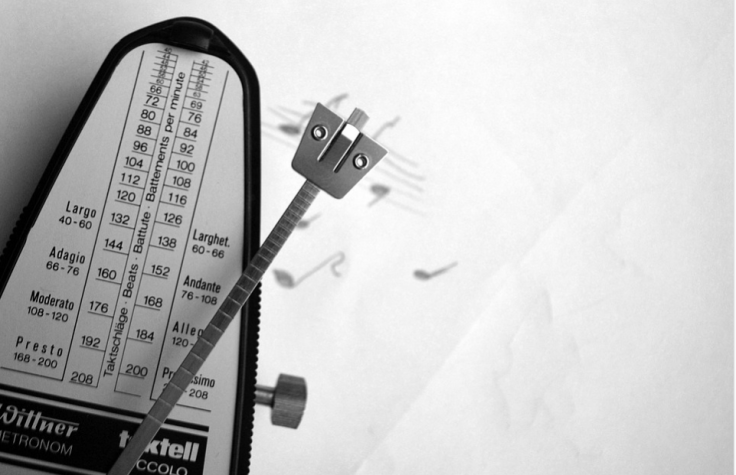Want To Learn Guitar? Play Your Favorite Songs In No Time By Following These Tips
Want to be that guy that plays "Wonderwall" while everybody sings along? Of course you do.

Picture this: You’re at a party enjoying yourself, and some guy suddenly calls everyone’s attention by pulling a guitar (seemingly out of nowhere) and playing “Wonderwall” by Oasis. It’s a song you’ve heard a hundred times by now, yet somehow, this guy manages to gather everyone up in a crowd and make them sing along… make YOU sing along. You find yourself having fun along with everyone, and end up wondering how strumming this stringed instrument can evoke such feelings. By the end of the night, you want to do it yourself.
Congratulations! You’ve been bitten by the guitar bug, and provided you put in the hours, what will soon follow is an exciting journey that will lead to many fulfilling moments.

Easily one of the most recognizable instruments out there, the guitar is behind some of history’s best musical moments. It’s the instrument that John Lennon held when the Beatles started, the one that Jimi Hendrix revolutionized with his wacky riffs, and it’s what Marty McFly from “Back to the Future” went crazy on while he played his own rendition of the tune “Johnny B' Good.” It is simply full of so much possibility.
The problem however, is that learning how to play it isn’t a walk in the park. And behind proper technique to basic theory, so much can get lost in the process that it’s easy to see why beginners get so disheartened or quickly lose interest.
But it doesn’t have to be like that.
While it is indeed a challenge that demands dedication, overcoming those hurdles is one of the most rewarding things in life. So in order to bring out your inner-John Mayer (or Ed Sheeran, depending on your taste), we’ve listed some of the best tips you can follow to help you not only get started, but keep you going. Carry on, our wayward son!
1. Know what you want
While it’s definitely tempting to go out there and buy the first guitar you see, doing some preliminary research can make the overall experience and purchase better for you, and this includes knowing what you want.
Do you want to play an acoustic guitar? Some classical music? Or maybe you wanna plug into an amplifier and rock out? How about the size? Don’t believe the saying that everyone should start on an acoustic, because getting a guitar that you want and will get you motivated is a big part in overcoming the initial hurdles on learning how to play it. Of course, it would also help to ask a friend or two who’s familiar with guitars, as well as ask music store employees for assistance.
2. Learn guitar systematically
While there are a lot of self-taught amazing guitarists out there, finding yourself a teacher that will show you all the proper technique, avoid common beginner mistakes, and set you on the right learning path will save you a lot of time and frustration.

So for this, we recommend enrolling yourself in a guitar course from ArtistWorks. Specializing in music-based courses, ArtistWorks provides affordable and interactive access to some of the greatest music teachers in the world. This means that in addition to signing up to their massive course library, the company’s patented Video Exchange method lets you submit your own work to your instructors in order to get tailored feedback and guidance.
For budding guitarists, this means that not only will you get access to specially-made courses that cover fundamentals, advanced techniques and learning strategies, but also get connected with a master teacher that will personally give you pointers and feedback. Additionally, you can also join a social community where you can interact and learn from other students on the program, all from the safety and comfort of your own home.
ArtistWorks currently offers tailored courses for guitar, voice, bass, piano, drums, and all sorts of woodwinds and string instruments. Learn more about their plans and pricing here.
3. Be Patient
While enrolling in a course will definitely give you the resources you need, that won’t magically make you the next John Mayer. Understand that these courses only provide you with the tools, techniques, and guidance, how you apply them is still up to you.
Remember that everything takes time, especially guitar. The process is challenging and frankly, never-ending, but commit to it for the long haul, and you’ll find yourself progressing in leaps and bounds. And just enjoy the process!
4. Small Goals Vs. Big Goals
If you’re like most beginner guitarists that picked up the six-string because you want to play your favorite song, then you’ll most likely want to start playing it as soon as you learn the basics, and that’s completely fine!
However, it can be tricky to try and do so. In that case, break the song up, and focus on mastering a couple measures at a time. While arduous, doing so would help you get little achievements more often, which is important in keeping your motivation intact. This technique will also help you focus on each part as its own, rather than try to tackle everything all at once.

5. Put into practice what you learn
Practice and application, these are the two pillars that you’ll need to use as you progress in your musical journey. While building technique and training your skills (preferably with a metronome) are both essential, knowing how to apply them in a song is a different cake altogether. For example, you might know the A minor pentatonic by heart, but learning how to use that in a song with a similar key is also great practice.
One popular way to do this is by playing alongside backing tracks, or even jamming with a friend. Doing so should improve your scale knowledge, tone, technique, sense of rhythm, and of course, that mysterious business of “getting into the pocket.”
6. Measure your progress
Not only will this tell you how far you’ve come, but will also give you an automatic motivation boost. When it comes to measuring your progress, the two tools at your disposal should be a metronome and a camera.
If you practice (and we hope you do) with a metronome, you might be playing things slower than usual. Once you feel confident in playing something at a slow tempo, start increasing the speed. Seeing you play something at a faster speed is evidence of improvement.

As for the camera, simply record yourself regularly and write down the date. Through this, you’ll be able to notice how much better you’ll be playing now than from a couple of months ago. Not only that, but this will also show you areas of improvement, such as your posture, hand positions, etc.
Additionally, it’s important to understand that your motivation won’t be the same every single day. There are simply days when you need to take a break and do something else, only to come back later when you feel excited.
7. Enjoy the process!
Lastly, enjoy the whole process! There’s a reason why the guitar is one of the most popular instruments there is, and it’s because playing it is incredibly fun and rewarding. There are times of course, that it can be frustrating, disheartening, or you come upon little walls, but that comes with most things in life, especially if you get really passionate with them.
Just learn to love the instrument, commit to it, put in the hours, and never forget why you started playing in the first place. So with that, good luck on your musical journey!





















